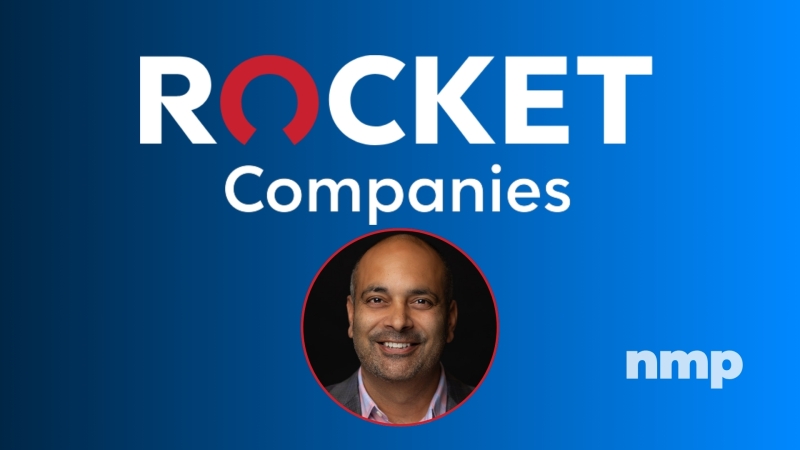Identifying Extraordinary Leaders
The winning qualities of an exceptional leader
As an executive in the mortgage industry, I am often asked how I approach the process of finding and retaining outstanding leaders within my organization. The answer is a complex one, because there is no surefire “One-Size-Fits-All” approach to developing a talented leadership team within a company. It’s an ever-evolving process that involves many changes along the way.
That being said, if you are a leader in the mortgage lending industry who has the responsibility of finding exceptional leaders for your organization, one of the most basic questions you should ask yourself is, “Which leadership qualities or characteristics are most important to my organization?” These may include some of the following:
►Superior communication skills
►Honesty and integrity
►Confidence
►The ability to inspire and motivate others
►Adaptability to change
►A sense of humor
►The ability to be firm yet fair
►Can effectively turn a negative situation into a positive one
►Shows empathy
►Is passionate and driven
►Possesses a strong sense of accomplishment
►Commitment to a desire to succeed
►Intuition
►Patient, yet maintains a sense of urgency
►A well-rounded individual
►Ability to think outside of the box—strong problem-solving abilities
►A good role model
►Holds team member and their peers accountable
►Can make effective decisions
Of course, this is simply a starting point. Once you consider the qualities listed above, jot down a few of additional characteristics that you believe are important in a leader. Another essential question to consider is how these qualities fit with your company’s culture. Workplace culture is key to a business’s success and maintaining a healthy team environment. For instance, someone may be an exceptional leader—with all the “right” qualities—but if he or she does not fit into your company’s culture, it is unlikely that a mutually beneficial relationship would exist between this leader and your company.
When considering the characteristics that make a good leader, another important item to keep in mind is that good leaders are not in their roles to simply manage employees, but to groom those individuals to become better in their own roles. In other words, managing the day-to-day operations is only a small part of an effective leader’s position. They must also encourage and teach their employees to excel and strive for excellence on a daily basis. As such, when you are recruiting for leaders within your organization, you may want to focus on this topic early in your discussions with the potential leaders, in order to discern if they have the ability and the excitement to motivate their direct reports.
I also believe it’s important to consider the leadership qualities that are relevant to the mortgage lending industry, in particular. For instance, leaders in the mortgage industry must display strong customer services levels with both internal and external customers. Strong work ethic and a sense of team building are also valued in the mortgage industry. Moreover, a sales-focused outlook and the ability to adapt easily are essential; as we all know, the mortgage industry is ever-changing, and you must be able to learn new regulations and adapt your procedures accordingly.
Finding “diamonds in the rough”
After you have identified the leadership qualities that are most important to your company and that fit well with your organization’s culture, you will be ready to start the process of seeking out those who match your idea of an exceptional leader. Attracting and retaining top leaders certainly involves a great deal of focus and strategy.
At my firm, we have a hardworking Talent Acquisition Department that utilizes a variety of resources to attract high-quality candidates. We also have an extensive vetting process that helps us eliminate candidates who may not be a good fit. Above all, we ensure that each new leadership hire has a work ethic and personality that align with our culture.
As your organization begins the recruiting process, remember that a balance between seeking outside individuals and promoting those who are already within the company is important. Recruiting and attracting leaders from outside your organization will help create diversity amongst your leadership team. Never underestimate the power of opening yourself up to fresh ideas, new business strategies, and outside expertise. More than likely, these will strengthen your current leadership team.
On the other hand, remember that exceptional leaders don’t always come from outside the organization. In fact, some of your best leaders may be already sitting in the desks next to you; they simply haven’t had the opportunity to take on a leadership role yet.
Promoting individuals within your organization certainly has its benefits. For instance, it is much easier to identify leadership traits and qualities when you are familiar with the individual already. Take a look around your office. Which of your employees is regularly outperforming other individuals? Which of your employees routinely takes the initiative to solve problems quickly and effectively? If you find yourself focusing on one or two people who fit into this category, these may be prime candidates for a leadership position.
Other benefits of promoting current employees include:
►It’s easier to groom an individual who already understands the processes and procedures, business strategies, and goals of the company.
►Providing employees with a goal and career path will improve your company’s employee retention.
►You already know that the employee meshes well with the company culture.
►It shows your employees that you value them and their success with the company.
Take these ideas into consideration when determining who may be the best fit for a leadership position within your organization. Again, there is no “correct” answer as to whether an outside candidate or an inside candidate will be the best fit. You simply need to consider the options, consult with other respected leaders in your company, and make informed decisions.
Important takeaways
As you search for effective leaders to drive your company’s success, consider these few parting words of insight:
►Think outside the box when hiring individuals for leadership roles. Skills, experience, and education are important; however, finding someone whose qualities align with your company’s culture is even more critical.
►The aspects of a job function—such as day-to-day processes and procedures—can by learned by anyone who is a great academic performer. But an individual’s character, coaching abilities, and overall mindset cannot be taught.
►Leadership skills are always evolving. If you expect to hire effective leaders, you must also have high standards for your own leadership development. There is always room for continual growth and improvement.
Also, remember that critical thinking, as well as the ability to listen to and understand your employees, is very significant. The overall role of a leader—regardless of whether that leader is yourself or someone who you hire—is to groom and motivate employees to become better. When one of your employees becomes so skilled, talented, and motivated that you have little need to encourage him or her further, that’s when you know you have been a successful leader! It’s also an indicator that this individual is ready for a leadership role.
As you continue to work on your own leadership skills, you will be better equipped to find effective and exceptional leaders for your company. Remember: It’s a process of continuous growth and change, but it’s also extremely rewarding.

As senior vice president of Loan Operations at Waterstone Mortgage Corporation, Kerry Wirth manages the Loan Operations staff, including the Disclosure Desk, Processing, Underwriting, Closing and Loan Delivery Departments. In her role, Wirth administers and manages operational processes and procedures, develops and implements strategic operations initiatives, and provides guidance and training for her respective departments.
This article originally appeared in the April 2016 print edition of National Mortgage Professional Magazine.





